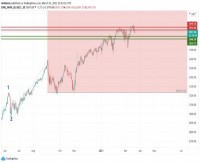|
By: Bailey McCann, Private Equity Strategies An ongoing story in the wake of 2008, is how hard it is for financially sound companies to gain access to credit after the crisis. Recently, hedge funds and private equity firms have stepped up their activities in non-bank lending, taking advantage of a growing pool of creditworthy companies who can¢â‚¬â„¢t get loans. This is great news for accredited investors hungry for returns, who don¢â‚¬â„¢t mind investing over a longer time horizon. Another way to invest in this space is through a business development company (BDC). BDCs have recently drawn the interest of private equity firms looking to diversify their business lines as well as investors familiar with specialty finance looking for new ways in. There are two ways to structure a BDC ¢â‚¬â€œ traded and nontraded. Traded entities basically act like publically traded private equity companies, giving a broader range of investors access to lucrative opportunity sets in debt and equity. On the other end of the BDC spectrum are non-traded BDCs which work similarly to public BDCs in terms of offering access to debt and equity, but through a closed-end structure. The return from nontraded BDCs can be more attractive than their public cohorts, although they typically also come with a riskier investment profile. Nontraded BDCs are offered through independent broker-dealers. In the immediate aftermath of 2008, BDCs hit a rough patch when the liquidity freeze hit everyone. But, in recent months the market for BDCs has picked up, with high profile announcements from the likes of Goldman Sachs, saying they planned to launch a BDC to invest in higher risk corporate debt and equity. The Goldman announcement was notable as they are the first bank to get into the BDC arena. Others in the nontraded space include big names in private equity as well, like KKR and Apollo. BDCs are considered specialty finance operations, typically outside of the realm of banks in the classical sense. Private Equity Strategies spoke with Michael Forman, CEO of Franklin Square Capital Partners, which pioneered the nontraded BDC structure, about what this all means for investors. Forman is a co-founding partner of Franklin Square, which is a sponsor and distributor of publicly registered alternative investment products. Franklin Square currently manages more than $5bn in investor assets held in three BDCs. "We look at bringing true alternatives to non-institutional investors," Forman explains. "We distribute our product on a wholesale basis much like mutual funds, but through independent broker-dealers." On the BDC side, Franklin Square's three funds focus primarily on corporate leveraged credit, energy and power. The firm works with GSO Capital Partners, a subsidiary of Blackstone as an investment advisor on its BDC funds. "We started working with GSO in 2008 before it was acquired by Blackstone. When the acquisition went through the entire team moved over, and we maintained our relationship with them as a sub-advisor," Forman says. He explains that Franklin Square wanted to stay nontraded because it can be difficult to raise money in the public markets for BDCs like this. So far, fundraising on the nontraded side seems to be working out, according to sources familiar with the firm, the FS Investment Corporation (FSIC) fund closed five months ago at approximately $4.3bn. The FS Investment Corporation II (FSIC II) fund is at just under $1bn, and the FS Energy & Power Fund (FSEP) is just over $1bn. "We are in a continuous offering, so we raise money everyday," Forman says. On the credit side, both FSIC and FSIC II invest in senior secured loans, unsecured debt, and equity. For investors, funds like this can bring diversity to credit positions. "These could be the long end of the bond ladder for example, and these investments are typically uncorrelated so you can get the benefit of that as well," he explains. Once these opportunities are identified, education becomes the next hurdle for firms like Franklin Square. Forman says they spend a lot of time educating independent broker-dealers about BDCs, and what they can do for investors. Apart from being CEO, he also leads the investment committees for the BDC funds. He says that bringing that knowledge into the education discussion can help broker-dealers better understand and explain products to investors. "People are starting to understand BDCs, they see the opportunity. Educating our wholesalers and advisors is a cornerstone of what we do, and they appreciate that," Forman says. Looking into the future, Franklin Square is working on a fourth fund as well as a liquidity event for FSIC. "I don't see huge drivers for growth in the US economy over the near term, but that lack of liquidity provides us with opportunities. We're going to be focused on performance and investing our capital wisely," he says.
| |
|
This article was published in Opalesque's Private Equity Strategies our monthly research update on the global private equity landscape including all sectors and market caps.
|
Private Equity Strategies
Movers and Shakers: BDCs Find New Life In Low Liquidity Environment |
|





 RSS
RSS











